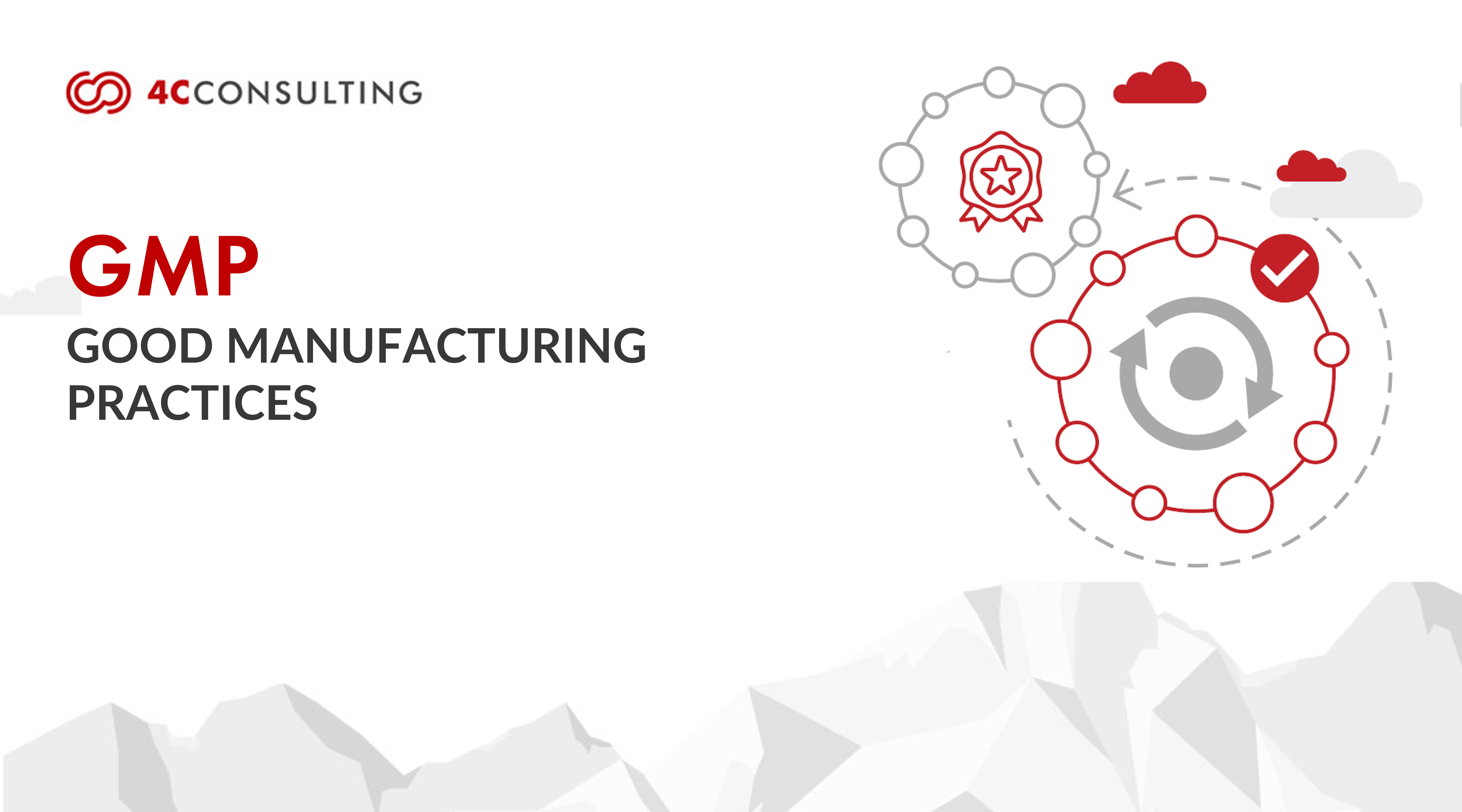
GMP (Good Manufacturing Practice): Navigating Quality Excellence in Manufacturing
15th Mar, 2024
In regulated industries such as pharmaceuticals, food production, and healthcare, compliance with Good Manufacturing Practices (GMP) is essential. GMP serves as a set of guidelines and regulations established to ensure the quality, safety, and consistency of manufactured products. It plays a crucial role in maintaining consumer trust and regulatory adherence. This blog offers a comprehensive Guide of GMP, delving into its principles, implementation strategies, and overall significance. Focusing specifically on industries where precision and reliability are crucial and to equip professionals with the knowledge and tools required to effectively navigate the complexities of manufacturing regulations.
.
What is GMP?
Good Manufacturing Practice (GMP) is a set of quality assurance guiding standards to ensure that products are consistently produced and controlled according to established quality standards. GMP covers all aspects of production, from the raw materials to the finished product, and encompasses factors such as cleanliness, personnel qualifications, documentation, and quality control. By adhering to GMP guidelines, companies can maintain product integrity, ensure consumer safety, and comply with regulatory requirements. Moreover, GMP plays a crucial role in fostering consumer trust, enhancing brand reputation, and achieving operational excellence within the manufacturing industry.
.
5 P’S OF GMP
Businesses seeking to thrive in the competitive market landscape must understand and implement the five key aspects of GMP standards, known as the 5 P’s of GMP:
- People: Ensure personnel are well-trained and qualified.
- Premises: Maintain clean and hygienic facilities.
- Processes: Define and control manufacturing processes.
- Products: Ensure finished products meet quality standards.
- Procedures: Document and follow procedures consistently.
Moreover, GMP plays a crucial role in fostering consumer trust, enhancing brand reputation, and achieving operational excellence within the manufacturing industry.
.
The 10 Principles of GMP:
Good Manufacturing Practice (GMP) is built on fundamental principles that guide manufacturers in ensuring product quality, safety, and compliance with regulatory standards. The 10 GMP principles are:
- Quality Management System (QMS): Maintain a robust quality management system covering procedures, protocols, and quality control measures. Ensure consistent application of quality standards across all production stages. Regularly assess performance to maintain product consistency and reliability.
- Personnel Training: Provide comprehensive training and continuous education for manufacturing personnel, emphasizing the importance of GMP compliance and quality assurance fostering a culture of accountability and commitment to quality excellence among all staff members.
- Premises Maintenance: Adhere to strict cleanliness and hygiene protocols to keep facilities in optimal condition. Implement regular cleaning schedules, sanitation procedures, and pest control measures to prevent contamination and ensure product integrity.
- Equipment Maintenance: Calibrate, maintain, and validate all manufacturing equipment for optimal performance. Develop rigorous maintenance schedules and calibration procedures to prevent malfunctions. Regularly inspect equipment to confirm compliance with specifications and minimize the risk of defects.
- Raw Material Sourcing: Source raw materials from reputable suppliers adhering to quality standards. Conduct thorough assessments and audits to ensure compliance with GMP requirements. Implement rigorous testing and approval processes to verify quality before use in manufacturing.
- Process Control: Implement robust controls and monitoring mechanisms to ensure consistency and reliability in manufacturing processes. Define critical control points and parameters, regularly evaluate performance, and conduct risk assessments for improvement.
- Documentation Management: Maintain detailed documentation of all production aspects, including procedures, processes, testing results, and corrective actions. Ensure accuracy, accessibility, and compliance with regulatory requirements.
- Validation and Qualification: Validate critical processes and equipment to meet predetermined specifications. Conduct thorough validation studies and document outcomes to demonstrate compliance with regulatory standards.
- Complaints Handling: Establish clear procedures for investigating and addressing product complaints promptly. Implement systematic approaches for capturing and analysing complaints to identify root causes and implement corrective actions. Ensure transparency and efficiency in complaints handling processes to maintain customer satisfaction.
- Audits and Inspections: Regularly assess compliance with GMP standards through audits and inspections. Utilize structured checklists and schedules to evaluate adherence to protocols and identify areas for enhancement. Document findings and corrective actions to foster continuous improvement and regulatory compliance.
.
GMP for Pharmaceutical Manufacturing:
Implementing Good Manufacturing Practice (GMP) is vital for ensuring the safety, efficacy, and quality of pharmaceutical products. GMP guidelines provide a robust framework that governs every aspect of pharmaceutical manufacturing, from raw material sourcing to final product distribution.
- Raw Material Quality Control: GMP mandates stringent quality control measures for raw materials used in pharmaceutical production. Suppliers must adhere to strict standards, undergo rigorous evaluation, and provide documentation to ensure the integrity and purity of materials.
- Cleanroom Standards: Maintaining sterile and controlled environments is paramount in pharmaceutical manufacturing. GMP requires adherence to stringent cleanroom standards to prevent contamination and ensure product safety. Facilities must undergo regular monitoring and validation to uphold cleanliness protocols.
- Batch Record Documentation: Accurate documentation of manufacturing processes is a cornerstone of GMP in pharmaceuticals. Manufacturers must meticulously record every step of the production process, including batch numbers, equipment used, and testing results, to ensure traceability and compliance with regulatory standards.
- Quality Control Testing: GMP emphasizes the importance of comprehensive quality control testing throughout the manufacturing process. Manufacturers must conduct rigorous testing to verify the identity, potency, and purity of pharmaceutical products, ensuring they meet established specifications and standards.
- Packaging and Labelling Compliance: GMP dictates strict guidelines for pharmaceutical packaging and labelling to ensure product safety and consumer information. Manufacturers must adhere to regulatory requirements regarding packaging materials, labelling content, and expiration dating to maintain compliance and consumer trust.
.
GMP for Food Safety:
Implementing GMP is paramount in ensuring food safety and maintaining high-quality standards in the food industry. GMP guidelines provide a comprehensive framework for food manufacturers to adhere to, covering various aspects of production, handling, and storage.
- Ingredient Sourcing: GMP guidelines dictate rigorous sourcing protocols to ensure the quality and safety of raw ingredients. Suppliers must meet strict criteria and undergo thorough evaluation to guarantee compliance with GMP standards.
- Hygiene Practices: Maintaining impeccable hygiene standards is non-negotiable in food manufacturing. GMP mandates strict cleanliness protocols in all production areas, including equipment, facilities, and personnel, to prevent contamination and ensure the safety of food products.
- Allergen Management: Effective allergen management is a crucial aspect of GMP in food production. Manufacturers must implement robust procedures to prevent cross-contamination and accurately label products to inform consumers of potential allergens.
- Process Control: GMP emphasizes the importance of precise process control to uphold food safety standards. Manufacturers must establish and monitor critical control points throughout the production process to minimize risks and ensure consistent quality.
- Documentation and Record-Keeping: Thorough documentation and record-keeping are essential components of GMP for food safety. Manufacturers must maintain comprehensive records of production processes, quality control measures, and ingredient sourcing to facilitate traceability and regulatory compliance.
.
How to Get GMP Certified
Getting GMP Certification is a significant milestone for manufacturers seeking to demonstrate their commitment to quality, safety, and regulatory compliance. The certification process involves several key steps:
- Gap Analysis: Assess current practices against GMP standards, identifying areas needing improvement.
- Training and Education: Provide comprehensive GMP training for personnel to ensure effective implementation.
- Documentation: Maintain detailed records to demonstrate GMP compliance during audits.
- Implementation of GMP Guidelines: Establish robust procedures across all operations for compliance.
- Internal Audit: Regularly assess adherence to GMP standards and effectiveness of processes by trained GMP internal Auditors.
- Third-Party Audit: Engage an accredited body for an audit to verify compliance with GMP.
- Continuous Improvement: Maintain a culture of ongoing refinement to uphold GMP compliance.
Good Manufacturing Practice (GMP) is indispensable across regulated industries, ensuring product quality, safety, and regulatory compliance. This guide has explored GMP’s core principles, implementation strategies, and significance, emphasizing its role in upholding manufacturing excellence. By focusing on key aspects like personnel training, strict adherence to guidelines, and continuous improvement, businesses navigate regulatory requirements effectively. Embracing GMP principles validates commitment to quality, paving the way for sustained excellence and innovation in manufacturing practices.
.
HOW 4C CAN HELP YOUR ORGANIZATION FOR GMP CERTIFICATION?
Partner with 4C to enhance your organization’s compliance with Good Manufacturing Practice (GMP) standards. Our expert consultants, well-versed in GMP regulations, provide unparalleled guidance for GMP certification. With over 15+ years of experience and 10000+ training hours and 50+ Workshops, our team equips you with the necessary knowledge and skills for GMP implementation. From developing quality management systems to facilitating internal audits, we ensure full GMP compliance. Choosing 4C Consulting not only ensures regulatory adherence but also boosts your brand’s reputation and consumer trust. Contact us now to initiate your journey towards GMP certification today.
